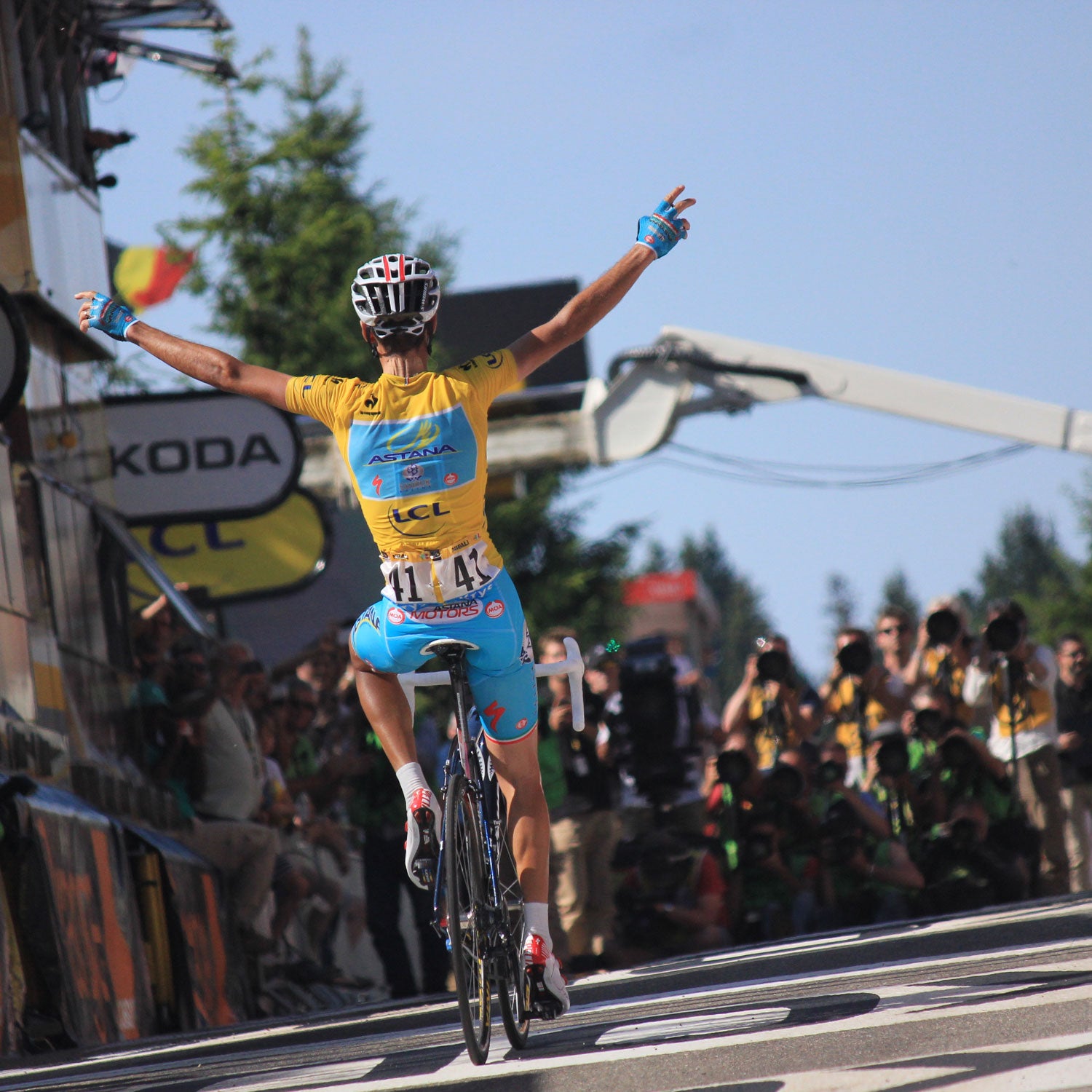Despite all the talk in recent years of a cleanup in cycling, pro riders could still be doping and getting away with it according to a new study produced by the independent watchdog group, Athletes for Transparency. that aired on French television earlier this week, researcher Pierre Sallet demonstrated how athletes could use micro-doses of EPO, Human Growth Hormone, blood transfusions, and corticosteroids without running afoul of the UCI’s Biological Passport testing program.
In a 29-day study of eight amateur athletes, Sallet compared the performances before and after a month-long regimen of performance enhancers. Prior to doping, each athlete underwent V02 max testing, as well as a time trial on a static bike and a timed 3,000-meter run. After a month of micro-dosing EPO and other substances, the participants were re-tested.
All athletes showed marked improvements, including an average increase of 6.1 percent in VO2 Max. Times on the 14-kilometer time trial dropped by 2.1 percent, while athletes were an average of 2.8 percent faster in the 3,000-meter run. And importantly, none of the athletes would have tested positive for doping under the UCI’s Biological Passport testing.
 is an anti-doping strategy that was adopted into cycling in 2008. The program is intended to make it easier to catch cheaters by establishing baseline blood values for every athlete and then following up with regular testing. Elevated values that could indicate doping trigger increased testing of an athlete and an eventual hearing and expulsion if no legal explanation for the divergence can be provided.
The program has been criticized for being both too sensitive, with athletes returning , as well as not sensitive enough since few riders have been sanctioned for passport infractions. The Biological Passport in the seven years since the UCI adopted it.
Sallet’s new study could partly explain why the Passport has been unsuccessful: If his results are correct, racers could be using tiny doses of doping products that boost their performances incrementally but aren’t big enough to trigger a positive. Anti-doping crusaders have speculated that micro-dosing has gone on for years, but until now, there has been little corroborating research. “A clean passport is not necessarily the passport of a clean athlete,” concluded the French television report.
The World Anti Doping Association (WADA)  with the TV report. Not only did it criticize Sallet for using the athletes as “human guinea pigs,” it also noted that the findings weren’t scientifically proven. “In commenting on any study, it is first important that the findings are properly peer reviewed and published,” the organization said. “This has not yet taken place with this study.
However, the TV program is hardly the first to point to the Biological Passport’s shortcomings. Several convicted dopers, including Ěý˛ą˛Ô»ĺ , have said that teams have the know-how to use micro-dosing to improve performances while beating the Passport controls. And in a  published in the European Journal of Applied Physiology, ten athletes who were given injections of EPO and showed an average increase of 10 percent in their hemoglobin values still failed to trip the passport system and register a positive.
All of that circumstantial evidence underscores a feeling that has been brewing in the cycling world in recent years that while the strengthening of controls has helped to reduce doping, it hasn’t eliminated it.
Ross Tucker at the Science Of Sport that the fastest racers at the Tour de France are logging times that are as quick as times set by riders from the doping era, many of whom have been sanctioned for using performance enhancers. And the continued success of riders who are known to have doped and returned to their winning ways after serving bans doesn’t inspire confidence. For instance, raised eyebrows.
Of course it’s unfair to point the finger at cyclists without actual proof that they are doping—after all, riders are subjected to more testing than ever these days, and many racers are forthcoming about releasing their data as a means of transparency. And anyone who is realistic will tell you that the problem isn’t unique to cycling and that, with the money and prestige at stake in professional sports, doping will likely never be wiped out.
Even Tucker, whose own research raises questions about whether doping is still ongoing in the peloton, says he believes that, debates over micro-dosing aside, the Biological Passport has been positive for the sport. “I believe that the biological passport has made doping more expensive and more difficult, and while it has not eliminated doping, it has likely reduced the extent of it,” he wrote after last year’s Tour de France. “Now we watch a world of micro-dosing, and understandably, the performance benefit will be smaller. Cheating is cheating, however small the benefit may be. But there’s hope yet.”


